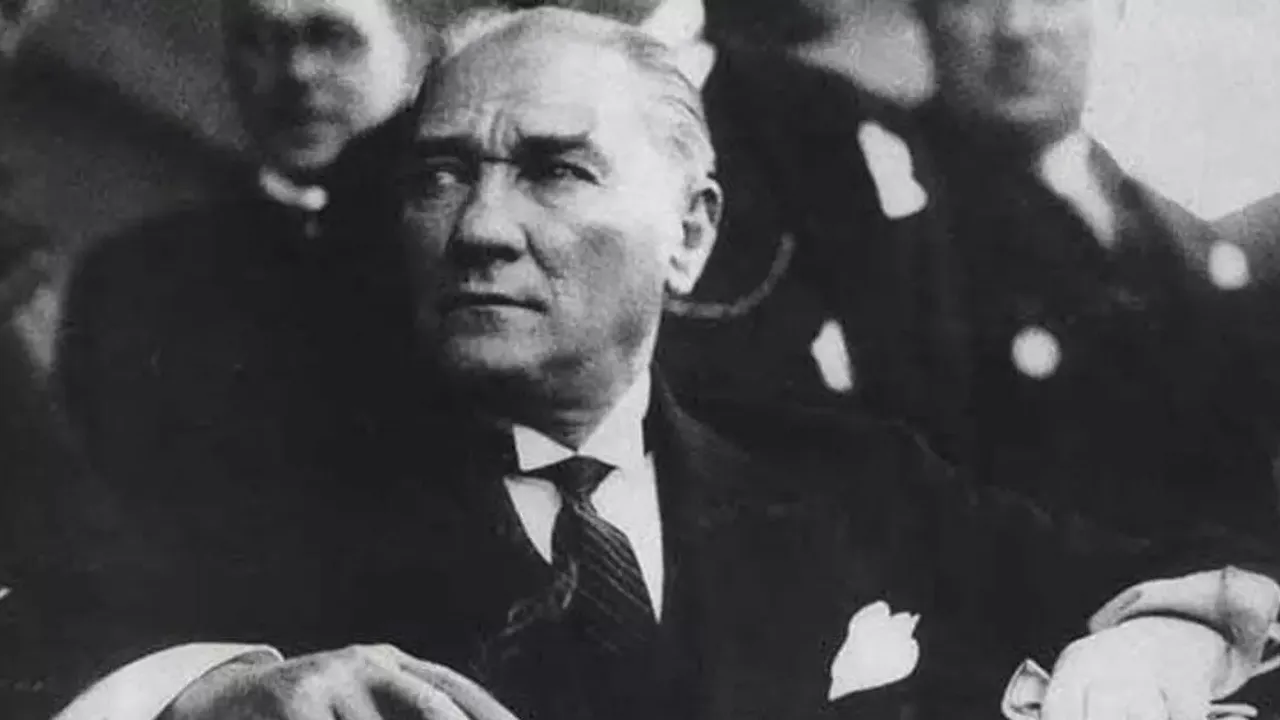Mustafa Kemal Atatürk, a name synonymous with modern Turkey, stands as an iconic figure who played a pivotal role in transforming a crumbling Ottoman Empire into a vibrant and progressive nation-state. This article delves into the life and achievements of Atatürk, shedding light on his enduring impact on Turkey and the world.
Mustafa Kemal Atatürk: A Brief Overview
Mustafa Kemal Atatürk, born in 1881 in Salonica, then a part of the Ottoman Empire (now Thessaloniki, Greece), emerged as a military genius, a statesman, and a visionary leader. Atatürk's life was marked by dedication, resilience, and a relentless pursuit of progress.
Early Life and Military Career
Mustafa Kemal's journey began in a modest family in Salonica. His early education, influenced by the military, foreshadowed his illustrious career. Graduating from the Military Academy, he swiftly rose through the ranks, showcasing exceptional strategic acumen.
Leadership during World War I
Atatürk's leadership during World War I was instrumental. His victories at Gallipoli and beyond not only repelled invading forces but also hinted at his potential as a nation-builder.
The Turkish War of Independence
Following World War I, Atatürk led the Turkish War of Independence against foreign occupation and the Ottoman Sultanate. This pivotal period laid the foundation for modern Turkey.
The Birth of a Nation
Atatürk's visionary leadership culminated in the establishment of the Republic of Turkey on October 29, 1923. This momentous event marked the end of the Ottoman Empire and the birth of a new nation.
Reforms and Modernization
Mustafa Kemal Atatürk's commitment to modernization was unwavering. His reforms encompassed various facets of society, including language, clothing, education, and the legal system.
Secularism and Religious Reforms
Atatürk implemented policies promoting secularism, separating religion from the state. These changes aimed to create a more inclusive and forward-thinking society.
Language Revolution: Adoption of the Latin Alphabet
One of Atatürk's most significant reforms was the adoption of the Latin alphabet in 1928. This transformed Turkish society by enhancing literacy and communication.
Women's Rights
Atatürk championed women's rights, granting them suffrage and encouraging their participation in all aspects of public life.
Legacy and Enduring Influence
Mustafa Kemal Atatürk's legacy continues to shape modern Turkey in various ways.
Political Influence
Atatürk's political principles, known as Kemalism, emphasize secularism, nationalism, and republicanism, guiding Turkey's political landscape to this day.
Educational System
The educational reforms instituted by Atatürk laid the foundation for a robust and globally competitive educational system in Turkey.
Cultural Impact
Atatürk's support for the arts and culture fostered a rich creative heritage in Turkey, with contributions spanning literature, music, and the visual arts.
International Relations
Atatürk's diplomacy and vision for a peaceful world continue to influence Turkey's foreign policy, promoting cooperation and stability.
FAQs
What was Mustafa Kemal Atatürk's full name?
His full name was Mustafa Kemal Atatürk, with "Atatürk" meaning "Father of the Turks."
How did Mustafa Kemal Atatürk contribute to women's rights in Turkey?
Atatürk granted women suffrage and encouraged their active participation in public life, advocating for gender equality.
What is Kemalism?
Kemalism refers to the political principles and ideology introduced by Atatürk, emphasizing secularism, nationalism, and republicanism.
How did Atatürk change the Turkish alphabet?
Atatürk replaced the Arabic script with the Latin alphabet in 1928, significantly improving literacy and communication in Turkey.
What is the significance of October 29, 1923, in Turkish history?
October 29, 1923, marks the establishment of the Republic of Turkey, ending the Ottoman Empire's rule and marking the birth of a new nation.
How did Mustafa Kemal Atatürk influence Turkish foreign policy?
Atatürk's diplomacy and vision for a peaceful world continue to shape Turkey's foreign policy, promoting cooperation and stability.

















